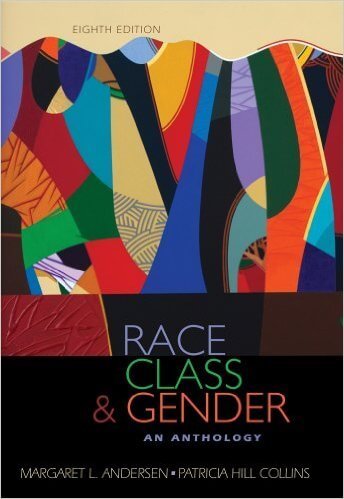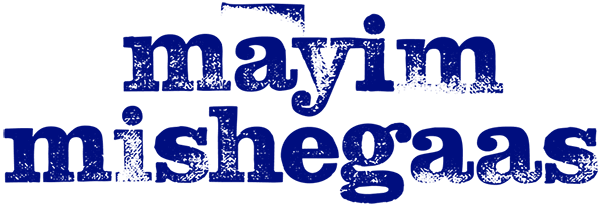
When people ask me what my favorite class was at UCLA, I answer: Neuroanatomy. During my training, I took it three different times, with increasing levels of complexity and dissection. Our professor was an emeritus master of the brain, Dr. Arnie Scheibel. He spoke like a poet and he loved the brain more than anyone ever could.
When people ask me what my hardest class was, I am certain it was Organic Chemistry. I studied literally every day all year and barely pulled a B-. I could not make my brain understand OChem no matter what I did.
When people ask me what my most empowering class was, I say the upper division class on Marxism I took as the only underclasswoman (that term is awkward but it feels weird to call myself an underclassman!). It was a wonderful class but incredibly hard as a sophomore and as a neuroscience student to boot; all of my classmates were studying philosophy or political theory. I was juggling Heidegger and Kant and the workload was enormous. I got an A in that class and I was so proud.
But when people ask me what the most life-changing class was for me at UCLA, I don’t answer “Biochemistry,” even though it helped me understand how cholesterol literally gets lodged in your arteries and fueled my decision to become vegan and thus consume no cholesterol. I don’t answer “Physics,” where I held the mysteries of the Universe in my hands as I computed quantum mechanics equations explaining the most minute details of our existence. I don’t answer “Jewish Studies” where the history of my people was revealed to me in its tedious and glorious repetition.
All of those subjects changed my life forever, but no class was as life-changing day-to-day as Women’s Studies, which affected the way I treat people more than any other class or experience I had in college or graduate school.
Now before you roll your eyes clear back into yesterday, I want you to know that Women’s Studies is not a class about women. It is a class about our culture and our society and the structure of our relationships. The lens is not for women only, although about 95% of my class was female. In Women’s Studies at UCLA, we learned about sexual relationships, hormones, psychology, development and politics. We explored our prejudice and our intolerance, and we confronted things about our perceptions and assumptions that transformed the way I view the world.
The most powerfully life-changing thing that Women’s Studies did for me was to make me concretely and acutely aware of the race and class injustice in the world. I bet you think that the feminist movement is only about empowering women. That is a part of it, of course. But the true movement of feminism seeks to use the lens of the women’s movement to empower all people regardless of race, class and gender. Men, women, however you identify. Rich, poor, black, white, brown, whatever you are. Women’s Studies taught me to see the world as that struggle for equality and it changed me forever.
One of our assignments one week was to start observing workers in the world. I started watching and I have never stopped. From literally that day forward, I became the person who says hi to service workers. I wave at garbage men. I say hello to janitors and custodians. When I see city workers doing construction I wave and say thank you. When construction was being performed in our neighborhood for a long enough time that the workers set up a tent, my sons and I baked cookies and took them over. I am that lady who makes eye contact with people in service positions in hospitals, schools, parks and at the mall.
You know why? Because in women’s studies we learned that if you want the world to be better and more equal, it starts with respect. Many people I say hi to are shocked or look behind them to see who I must be talking to, because people so rarely say hi to service workers and construction people and garbage men. That makes me so sad. Imagine if your job was to collect garbage and drive around in a huge old truck all morning and it’s noisy and you rarely get breaks and you don’t make as much money as you should and you have to wake up early and it’s just exhausting. Imagine that you go through your life without anyone saying hi. Or thanking you. Everyone should thank the garbage man and say hi. That’s my feeling. Because human beings are social, and we need to feel like we matter, because we do. Everyone matters.
People who are not treated well often treat others poorly. I tell my kids this all the time: bullies at the park have probably been bullied. “By their parents, I bet,” says my older son. (He’s got a lot of issues with people yelling at their kids and being mean to them in public; I guess he’s a boy after my own heart!) Maybe, I tell him. But the best we can do is treat people kindly and show them that there is kindness to be had. Every single person on this earth has a purpose. People give their time and energy to make our roads go, and to collect the trash and to clean up our mess we make at the mall when we eat like hyenas and food flies everywhere. Those people matter.
Thanks to Women’s Studies, I understand the larger impact of feminism, not just on gender studies, but on the battle for equality for all. And I understand that by acknowledging and thanking people who are largely unseen and unacknowledged and often go about their lives unthanked, we can be part of of making the world better, one hello at a time.
Here is the textbook from my class. I know it’s expensive, but I just wanted the resource listed in case you want to try it on for size.
Grok with us: Do you identify as a feminist? Why or why not? And how does that change your perspective on the world?




 Read More From Mayim
Read More From Mayim
Grok Nation Comment Policy
We welcome thoughtful, grokky comments—keep your negativity and spam to yourself. Please read our Comment Policy before commenting.